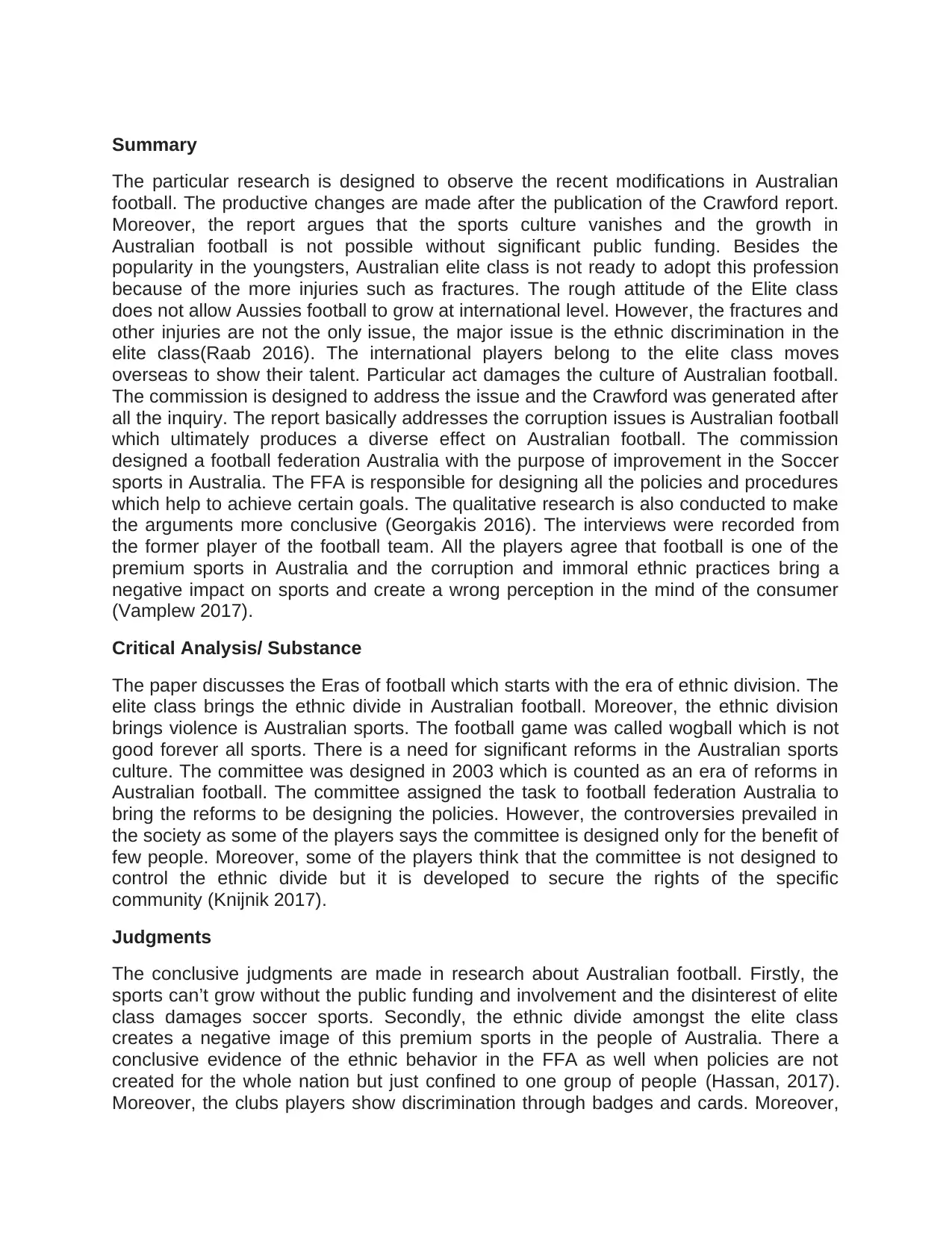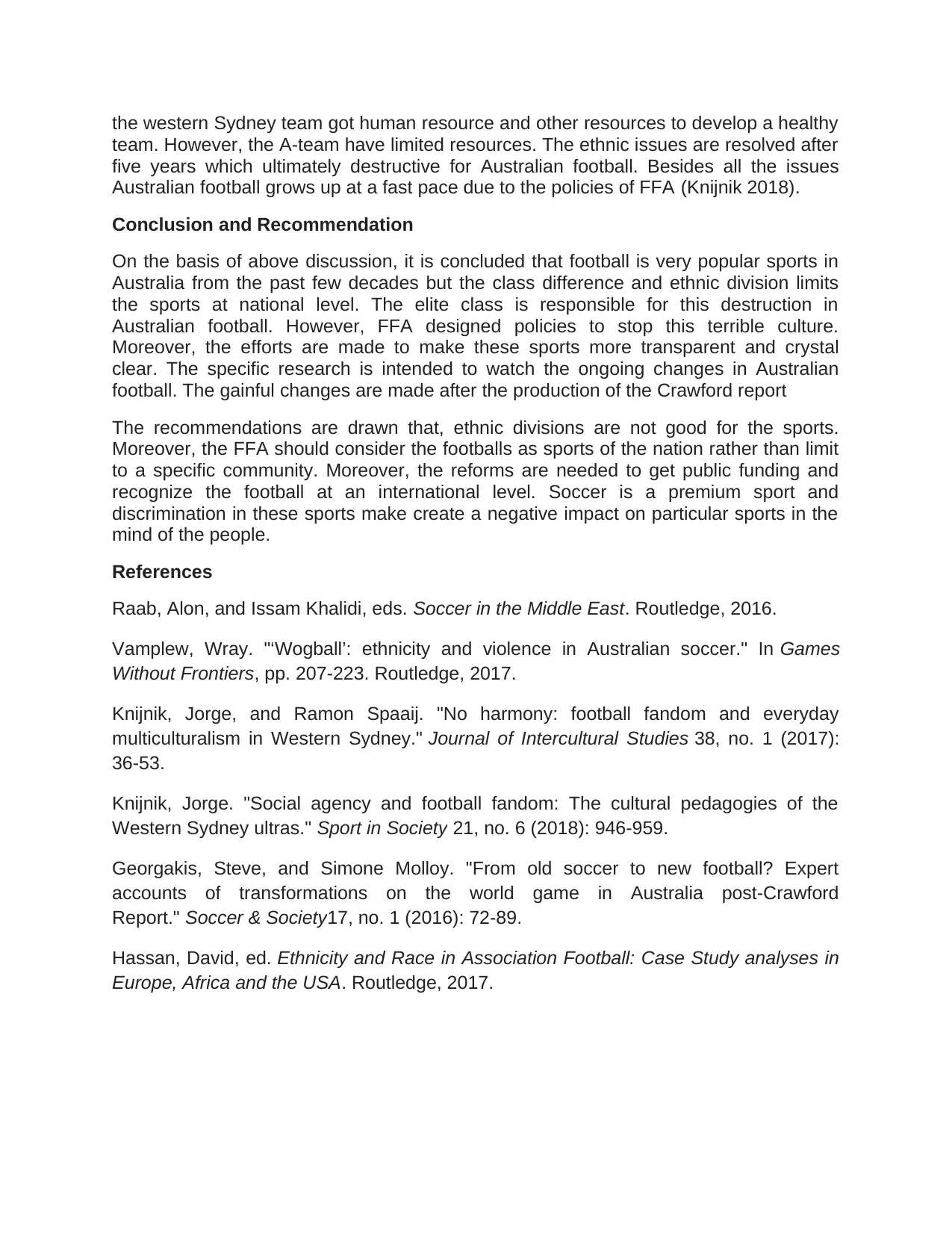Report: Social Transformations in Australian Football Post-Crawford
VerifiedAdded on 2023/01/16
|2
|1013
|70
Report
AI Summary
This report provides a critical analysis of the transformations in Australian football, particularly focusing on the changes that occurred after the publication of the Crawford Report. The analysis highlights key issues such as ethnic discrimination within the elite class, the impact of public funding, and the influence of the Football Federation Australia (FFA) on policy and development. The report synthesizes the arguments from the provided research paper by Georgakis and Molloy (2016), which examines expert perspectives on the evolution of Australian football. It discusses the historical context, including the era of ethnic division, and evaluates the effectiveness of FFA policies in addressing these issues and fostering growth. The report also considers the role of public funding and the challenges posed by elite class disinterest. The conclusion emphasizes the need for reforms to combat ethnic divisions and promote football as a national sport, recommending increased transparency and broader community involvement.
1 out of 2


![[object Object]](/_next/static/media/star-bottom.7253800d.svg)